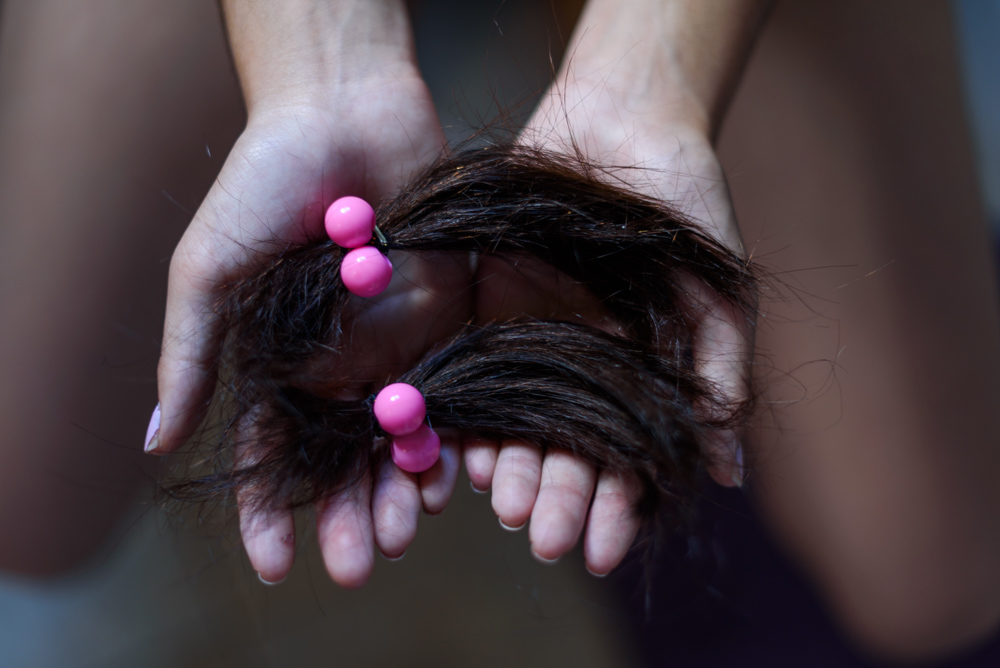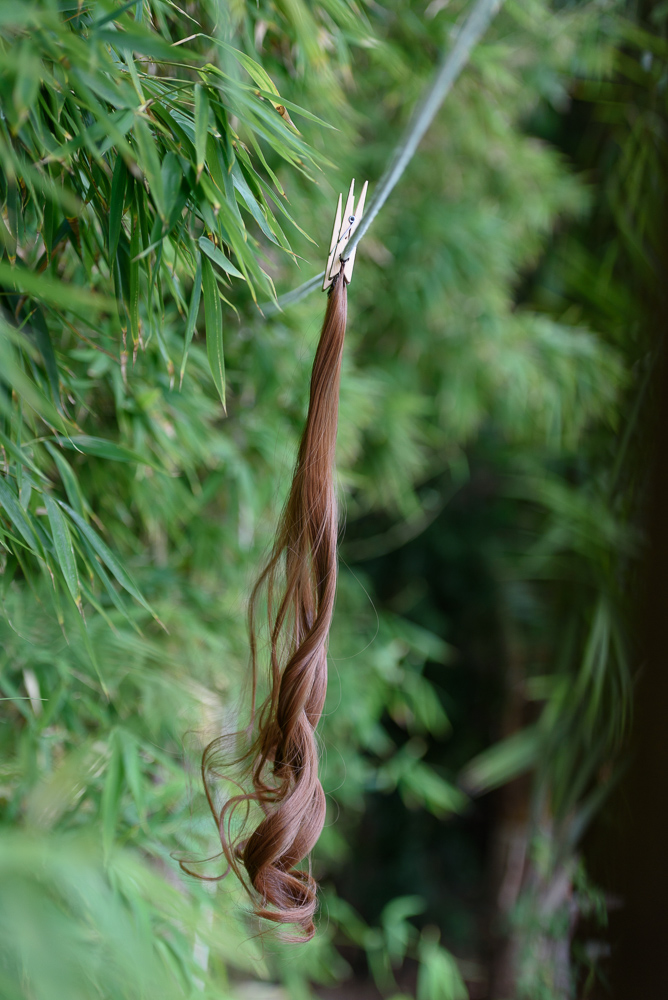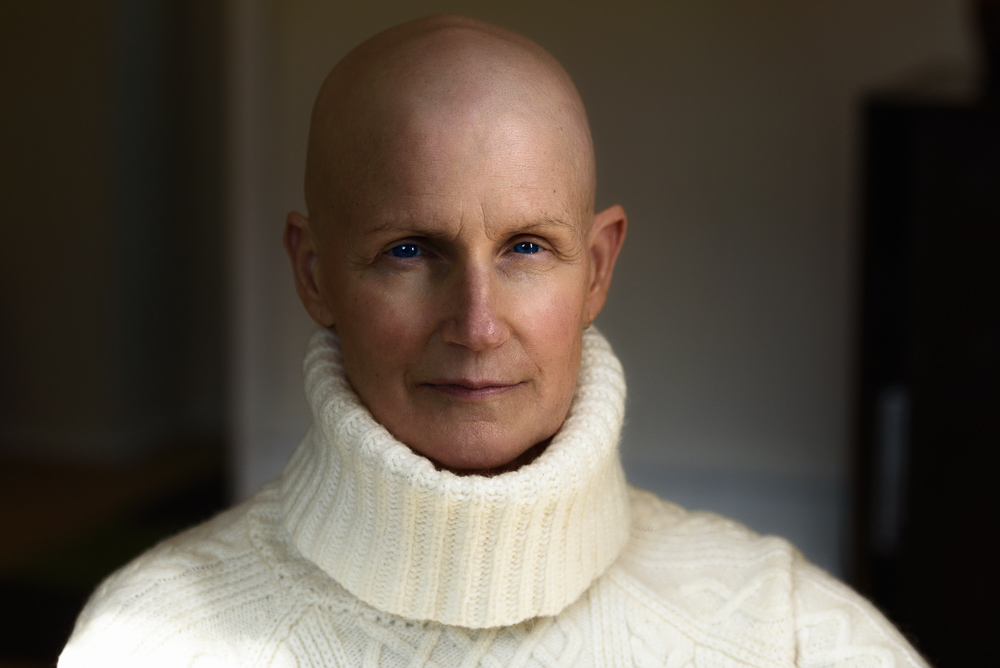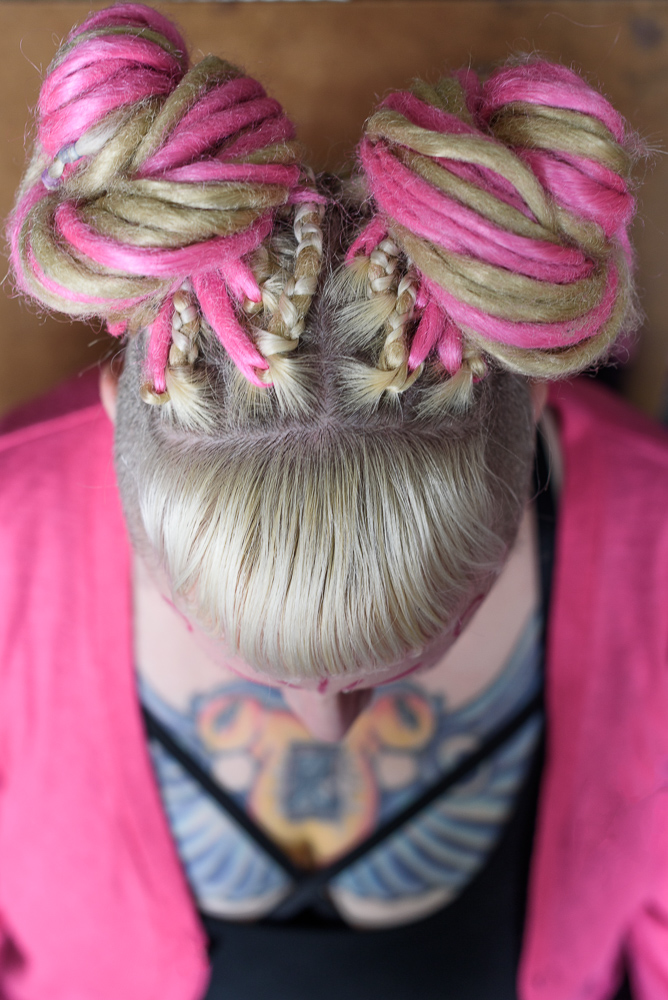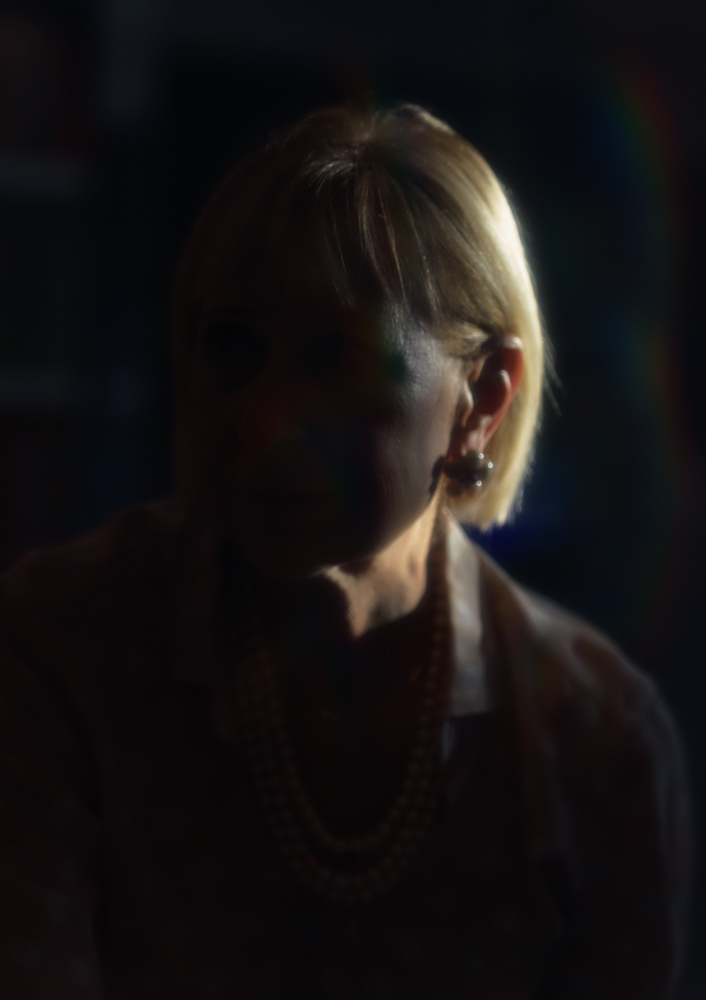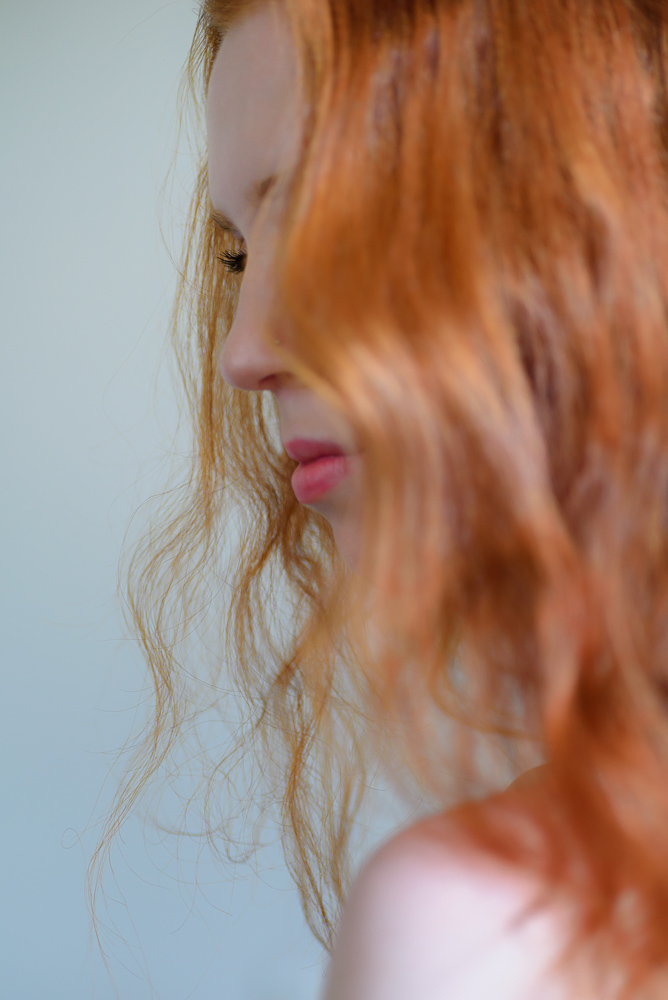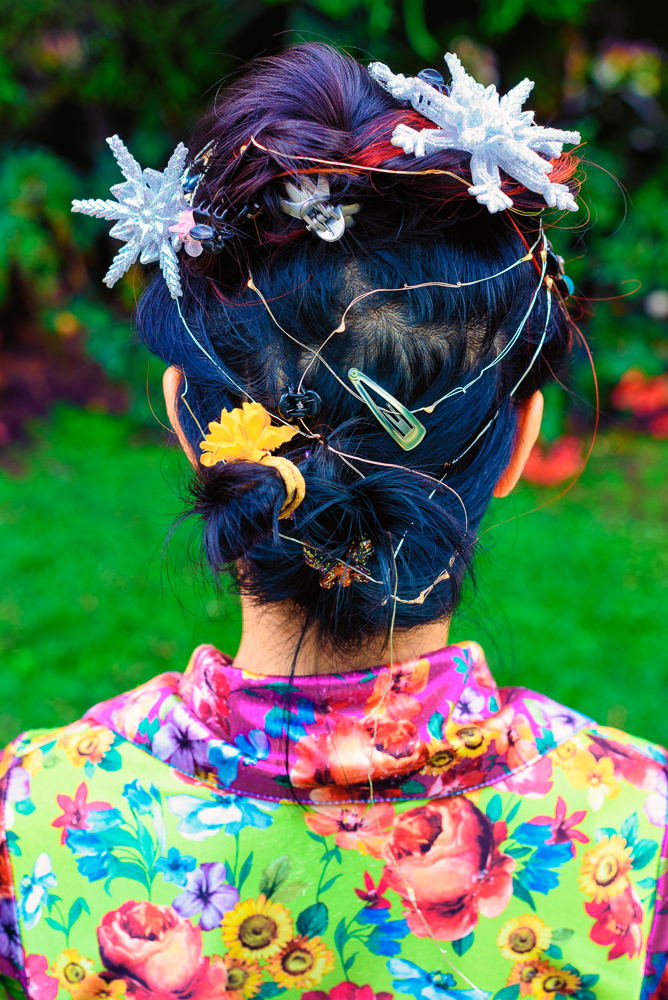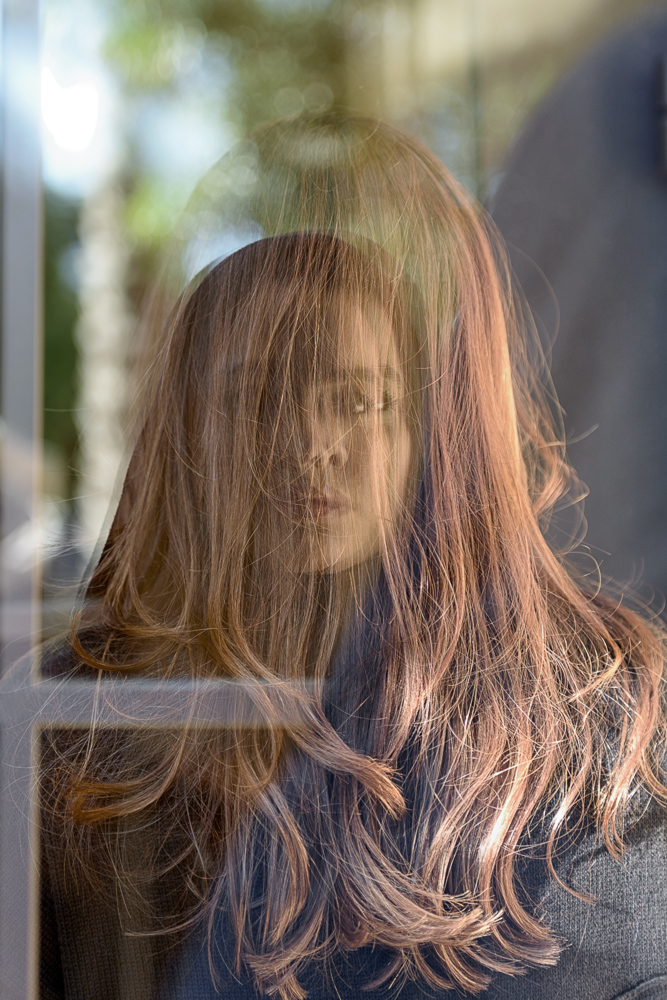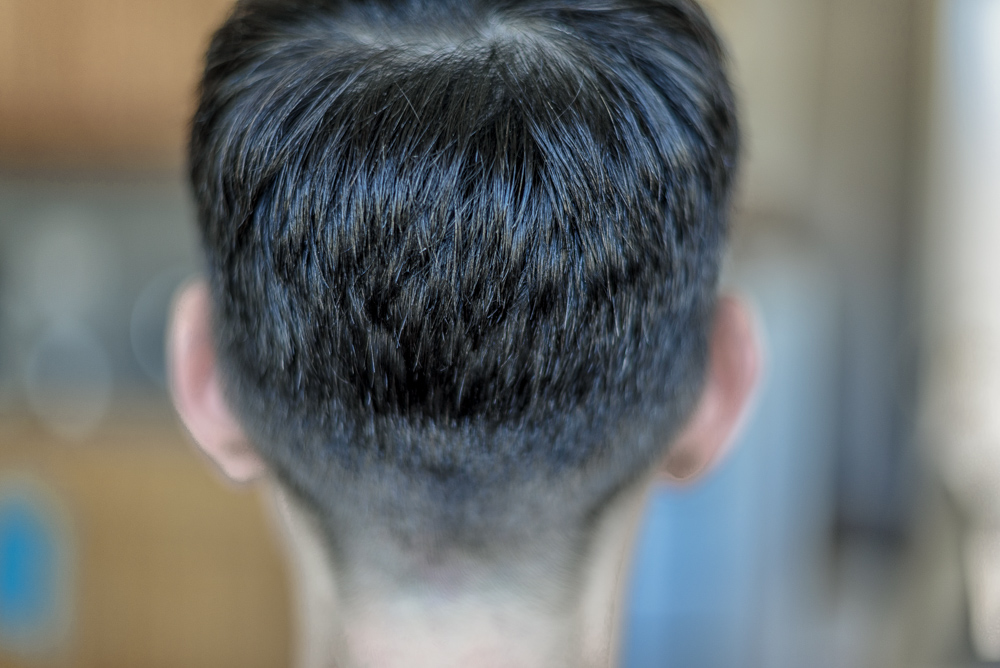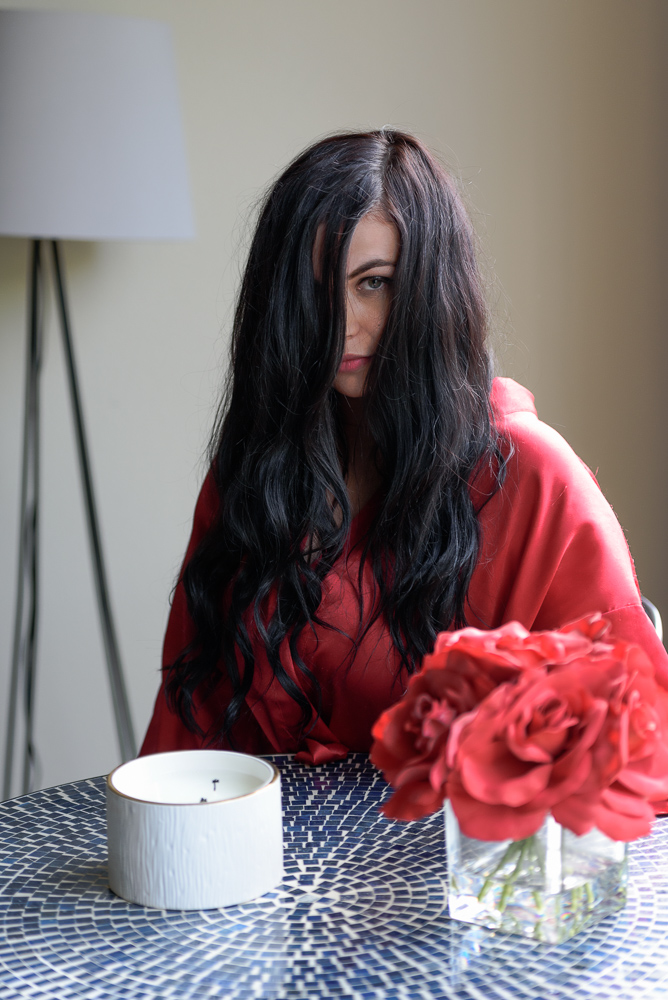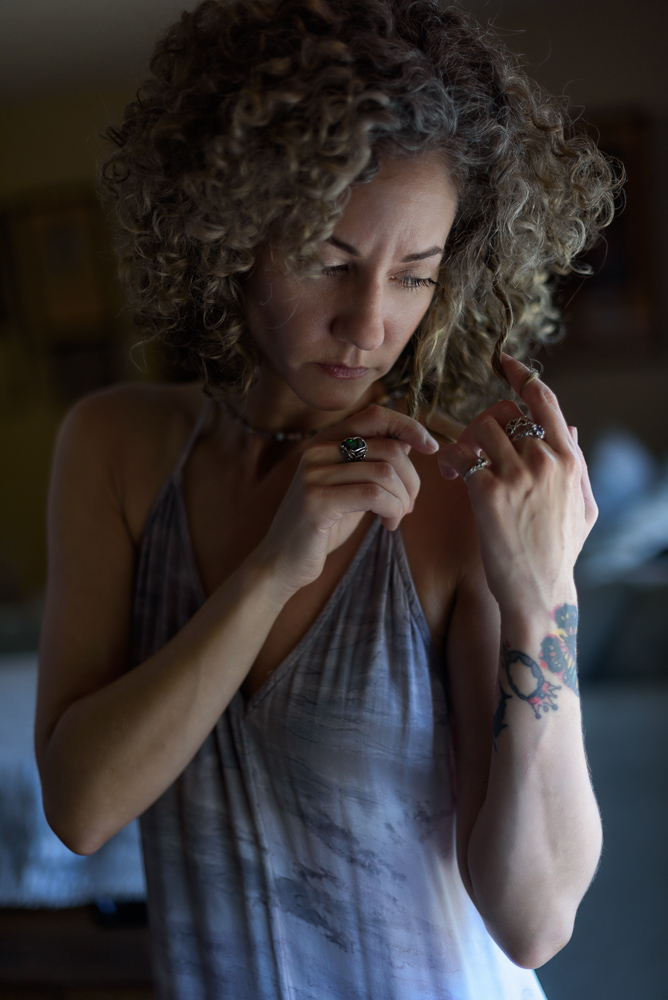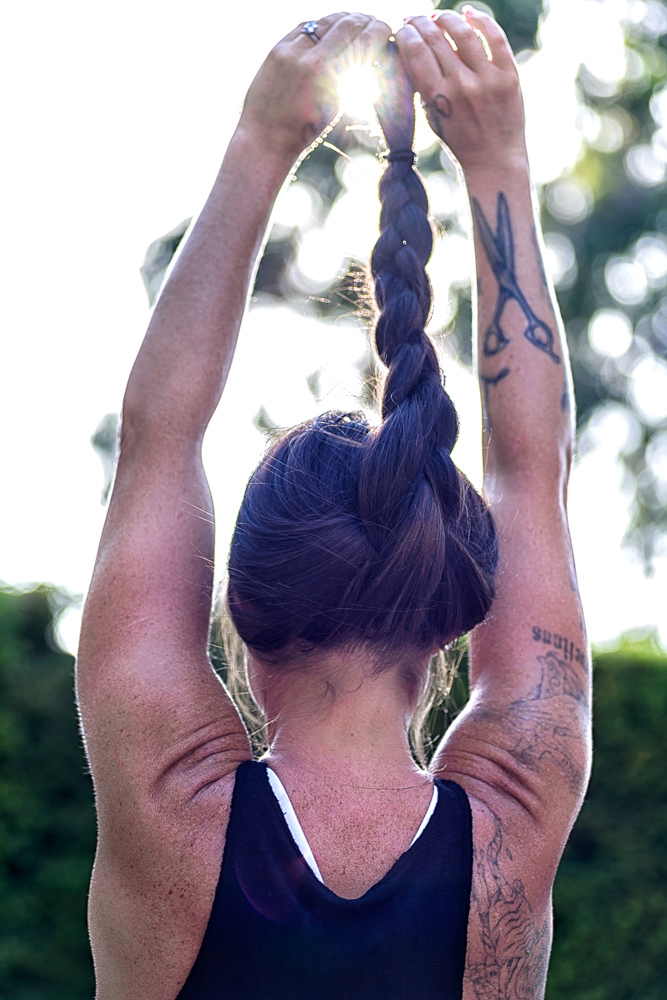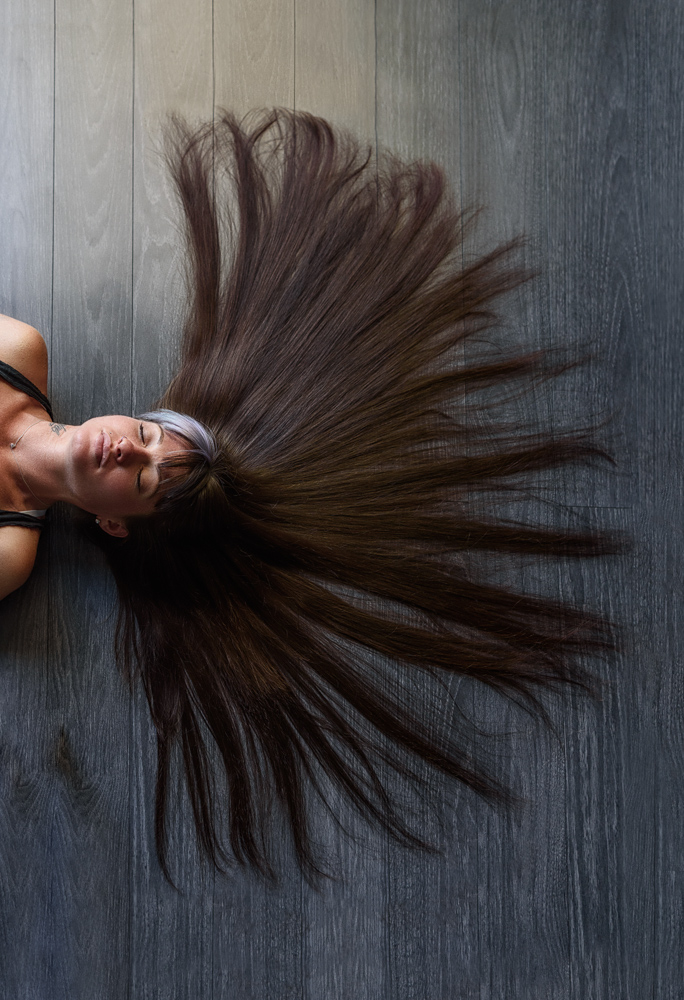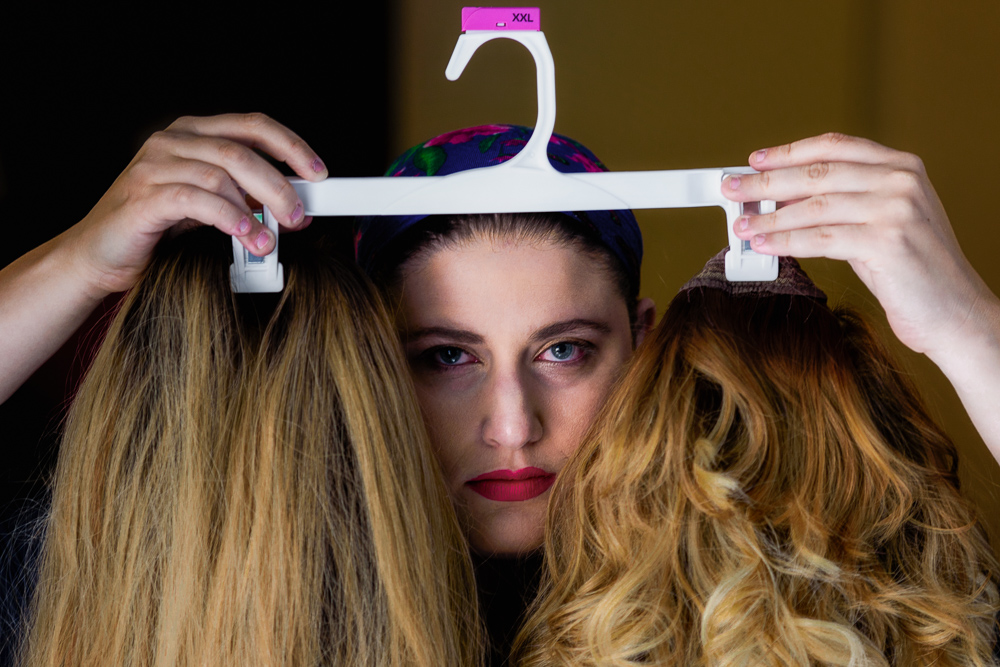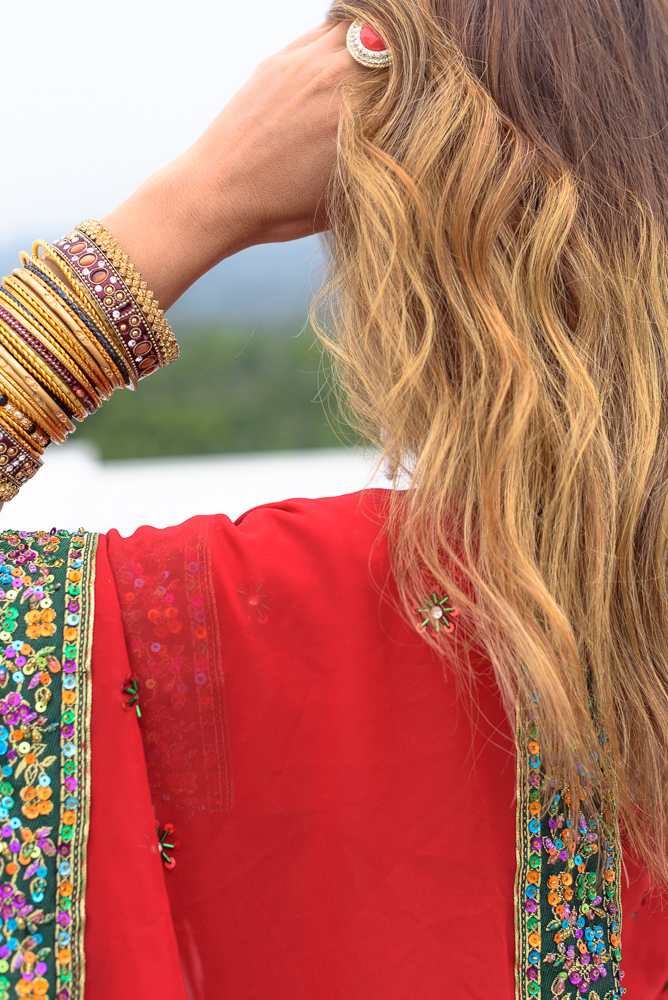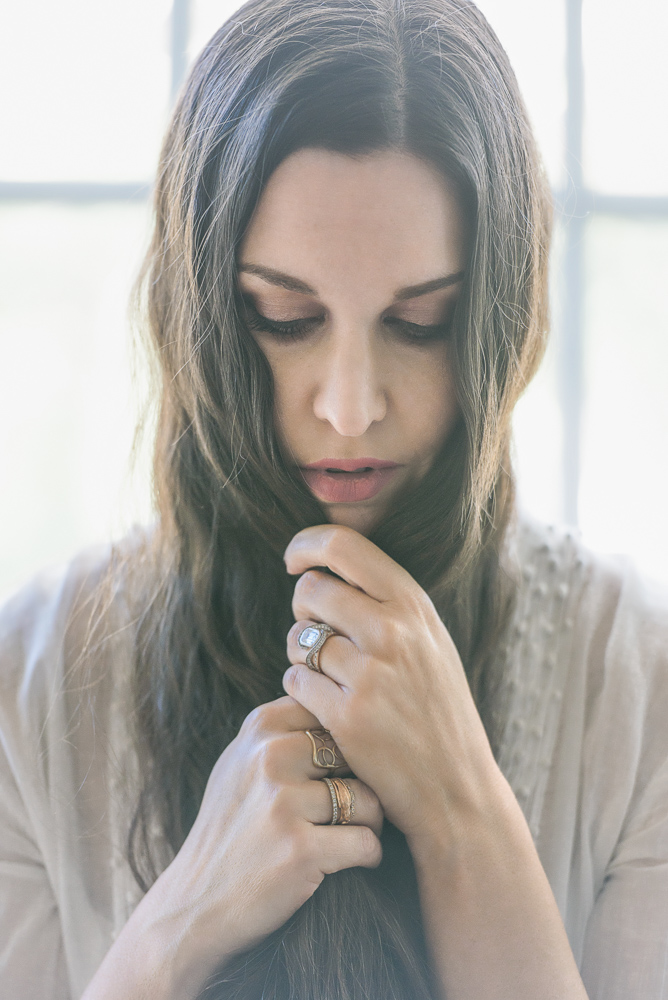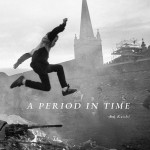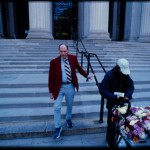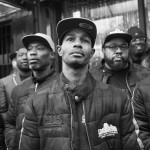Rohina Hoffman: Hair Stories
We’ve all had bad hair days, unfortunate haircuts, and moments when our egos are tied to what’s on top of our head. Photographer Rohina Hoffman understands that hair is much more psychological and deeply connected to our identities, and can also symbolize power and control. For her project, Hair Stories, she has photographed and interviewed dozens of subjects, simply asking them to talk about their hair. The result is a complex and varied telling of identities and philosophies that surround our hair. Excerpts from the interviews follows.
Born in India and raised in New Jersey, Rohina Hoffman grew up in a family of doctors spanning three generations. Rohina’s interest in photography began in her teens, when she was introduced to the art of traditional black and white film photography. While an undergraduate at Brown University, Rohina also studied photography at RISD and she was a staff photographer for the Brown Daily Herald.
A graduate of Brown University Medical School and resident at UCLA Medical Center, her training led to a career as a neurologist. Taught to be a skilled observer of her patients, Rohina was instilled with a deep and unique appreciation of the human experience. Her ability to forge the sacred trust between doctor and patient has been instrumental in fostering a parallel connection between photographer and subject.
Rohina has exhibited in juried group shows both nationally and internationally including, dnj Gallery in Santa Monica, CA, Center for Fine Art Photography in Fort Collins, CO, Tilt Gallery in Scottsdale, AZ Providence Center for Photographic Arts in Providence RI, A Smith Gallery, in Johnson City, TX, SFA Art Galleries in Nacogdoches, TX and has been published. Rohina recently received an Honorable Mention in Fine Art from the Tokyo International Foto Awards 2016 and Honorable Mentions in Portraiture with the Neutral Density Awards 2016 and Monochrome Awards for 2015. She lives with her husband, three children and two golden retrievers in Los Angeles.
Hair Stories
From an early age I understood that hair had power. At the age of 7 my own two ponytails were chopped off very unceremoniously and for a good part of my childhood I sported a boy’s haircut from which I probably never fully recovered. The trauma of losing control of my identity has stayed with me my entire life.
For my project Hair Stories, I interviewed and photographed almost three dozen women about their hair. These women represented a diverse group of ages (14 to100) and ethnicities. The leading question was “Tell me about your hair.” What I discovered is that hair is a language, a shield, and a trophy. Hair is a construct reflecting our identity, history, femininity, personality, our innermost feelings of self-doubt, aging, vanity, and self-esteem. Hair also has deep sociological roots. It can be indicative of a certain religious or political belief system and like its genetic code, is complicated and touches our very core.
The photographs in this series were inspired by the personal stories and histories of the subjects and created in their home environments. From my experience as a neurologist, I utilized the interviewing skills gleaned from medical training and the women’s oral narratives were transcribed and excerpted for written and audio clips.
Hair Stories reflects that hair is more than just style or aesthetics; it is a physical manifestation of the history of women. Every participant had her own unique connection to her hair (or the absence of it) and her own story, whether it was an association from childhood or a way of caring for or presenting her hair, yet there were many similarities in the language they used and the feelings expressed. The overall collective voice confirmed that hair is important and is best understood as a meaningful mirror of identity and often evolves, just as we do. — Rohina Hoffman
I know that for some people, chemo – their hair doesn’t fall out depending on what’s happening to them. For me, it tells the world something about me and that people stop. Complete strangers stop and talk to me. Complete strangers touch my arm and give me reassurance. If my had my hair, they wouldn’t know.right now it is defining me. Who I am. I guess my hair never did that before. So, not having it is more powerful, frankly, than having it. —Susan
Hair is actually a HUGE identifier for me. I am an old punk rocker. Hair was how we expressed ourselves. We shaved our heads. We did it funny colors. It was kind of one of those things that identified our difference. You know, I felt different on the inside for so very long and didn’t fit in no matter how much I tried– I have actually cut my hair to try to fit in. I have actually tried to make myself look more like the people around me, thinking that that would connect me in some way and when I cut the hair off it actually was very freeing. It was like, no, this IS me. I’m strange; my hair is strange. It was kind of like one of those, yeah, this is me. If you’re going to hate me, you’re going to hate me. You’re not going to hate me for who you think I am or for who I’m pretending to be to please you.
The pink has been the most successful. I love pink anyway but people treat me different when I have pink hair. It’s very welcoming. It’s almost as if the color itself draws people. –Misha
I started noticing myself in photographs and I was shimmering. I was always happy with my brown hair, but I feel like I stood out in these photographs. It was almost like lights from the heaven were shining upon my head. And I felt very special.
I call it the gilding.Sitting with stuff on your hair for almost an hour. But it’s worth it. It’s always worth it. Because you come out looking shimmery again. You’re gilded.
This is an epiphany today that perhaps doing that sets you apart a little bit. But it’s ironic that many of my friends now have become blonde. So when we go out, it’s almost like I’m back to average. —Judith
In middle school, I tried really hard to suppress the natural texture and make it straight like everyone else’s because all I wanted was really long, straight, blond hair.
It’s been three months or so that I’ve decided to let my hair just do its own thing, go natural. And it’s funny because a lot of my friends who have curly hair are doing the exact same thing now. We’ve all ditched the flat-irons and blow-dryers and we’re all just wearing our hair natural. — Sophie
I love my hair. It has always been long. People always comment on it and want to touch it. I have never colored. It is natural. I like natural everything. — Olivia
I would say I cut off at least – at one point it was probably a foot and a half of hair.
You know, there was a lid on it by the fear of my parents because I was obedient and I didn’t know I was allowed to be an individual but then once I cut my hair I burst out with who I was.–Angie
I felt lighter and I was invisible. That was the best feeling for me. I didn’t have to smile at anybody and I could be pissed off. Whatever I felt inside, I could be. I could blend in and work on whatever’s breaking me. All this extra stuff you have to worry about: representing Muslims, speaking for Islam,carrying this banner of Islam on your shoulders, and defending and educating people on Islam, it’s all on you when you wear hijab. It’s almost like every girl who wears hijab suddenly has to be a scholar of everything and explain everything to everyone. You can’t just be a girl any more that is going through her own experiences and has made a choice. — Nasha
I was always asked a lot as a kid “why do you want to be a boy? ” I never understood that because I didn’t want to be a boy. I was very happy being a girl but I wanted to be a tomboy. I didn’t even like the word tomboy. I wanted to be a tomgirl or a Jane of all trades or a Julia of all trades. — Julia
When I was in first grade, my mom took me to the salon and cut my hair really short, like a boy. She thought it was adorable. I cried for days. Ever since, I have had long hair. It took years to grow out and it takes a lot for me to get haircuts. I don’t get more than an inch cut off at a time. I think that long hair makes me feel more feminine and my entire style is geared towards that. I can’t see myself cutting it short.--Larisa
I wasn’t born with my hair this curly. Mine was through medication. When I was 12, I had a grand mal seizure and the medication they put me on, it was like one dose too high, so half of my hair fell out.
I don’t remember the day it started growing back in curly. I just know that all of a sudden it was there, I guess. That’s the only way I can put it, that I had very curly hair at the top of my head.— Kelly
When I was a little girl I wanted princess hair. My mom used to cut it with the kitchen scissors so I always had super crooked bangs, really long crooked hair. That’s probably why I became a hairdresser is because I never wanted haircuts from my mom.
I remember getting in front of the mirror every morning and doing my hair and being excited to do my hair and my makeup because it was something that was a part of me. It represented who I was, just somebody different, somebody unique, maybe not the white sheep in the herd. –Emily
It was through wearing wigs that I realized that I had incredible hair. And now it has been covered for the last five years. It is now straight and limp and no longer has this gorgeous coloring. I had the hair that people spend a fortune on. A lot of people would look at that and being saddened by it, for me, it’s not sad. For me, it’s that way because I’m fulfilling a commandment that God gave me. It brings me closer to God, especially as a divorcee. — Eliana
No matter how light my hair is, I’m still a brown girl –Archna
I have all of this hair and I can hide behind it. I am a mom of three children, happy but tired. If I didn’t hide, you would see a woman that is scared. I am unsure about the future. Where is my place in things? I am so happy that I have a wonderful husband and three children but I still think that there is more. I am not sure what it is yet. — Alexis
Posts on Lenscratch may not be reproduced without the permission of the Lenscratch staff and the photographer.
Recommended
-
Anastasia Tsayder: ARCADIAJanuary 28th, 2026
-
Ed Kashi: A Period in Time, 1977 – 2022January 25th, 2026
-
Greg Constantine: 7 Doors: An American GulagJanuary 17th, 2026
-
Kevin Cooley: In The Gardens of EatonJanuary 8th, 2026
-
William Karl Valentine: The Eaton FireJanuary 7th, 2026

